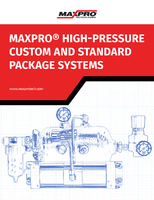Storopack is Raising Awareness for its EPS Closed Loop Recycling Program in North America
Metzingen, April 2021. Together with the EPS Industry Alliance (EPS-IA), the protective packaging specialist Storopack advocates for a safe and efficient recycling of expanded polystyrene (EPS). Storopack uses recycled EPS in a variety of applications, including the manufacture of its PELASPAN® PAC Loose Fill packaging peanuts. Often mistaken for a single-use plastic by consumers and municipalities, they can end up in the landfill. But EPS can be fully recycled and, more importantly, there is no limit to the amount of times it can be reused as Loose Fill. In fact, the packing peanuts used for product protection in shipments are made from post-consumer and post-industrial recycled material. To raise awareness for its recyclability and reusability, Storopack has created education cards on how to recycle EPS Loose Fill in every shipments so their customers can communicate effectively to their customers. Storopack started thinking about sustainability almost 10 years ago and in 2019, more than 30% of their in-house manufactured products were made from renewable or recycled materials. Storopack’s PELASPAN® PAC is already made from 100% recycled plastic to further close the recycling loop. By doing this, Storopack was also able to support State of California’s EPS ban proposal and minimize EPS from reaching landfill. Besides protective packaging, Storopack also produces filler bead with 100% recycled EPS which is used for indoor and outdoor furniture, pool toys, and stuffed animals. For many customers these materials are a necessary part of their production or distribution process. It’s important to know 100% recycled EPS is cost-effective and important solution for their businesses.
Eco-Friendly and Reusable
Storopack was an original member of the EPS Industry Alliance and has been committed to developing a nationwide infrastructure for EPS collection. Based in the US, the EPS-IA’s primary purpose is to educate about the benefits of EPS in all forms, and, above all, where and how to recycle or reuse EPS. “We joined the EPS-IA to gain an important channel to re-awaken consumers to the benefits of expanded polystyrene. With our commitment, we would like to raise awareness of the EPS-IA return infrastructure and where consumers can take these products for re-use and recycling. Additionally, we added 18 “drop off” locations in each EPS Closed Loop Recycling Program PRESS RELEASE 2/4 Storopack North American production facility for all consumers to drop off the EPS Loose Fill packaging material to be recycled properly and continuing to close the loop from EPS ending up in the landfill. This was part of our Closed Loop Sustainability project after we transitioned to only producing with 100% recycled EPS,” explains Tommy Moorman, Storopack Marketing Manager. EPS-IA has already established numerous collection points for EPS products across the US. This includes thousands of mailing, shipping and mailbox stores, as well as each of the 18 Storopack manufacturing locations in North America. The Closed Loop Recycling campaign empowers the consumer to make a difference and feel good knowing the packaging received was made from recycled materials and can be recycled again and again. State of California has already recognized Storopack’s recycled EPS packaging peanuts should not be lumped into the same category of other virgin or single use EPS products such a food containers or drinking cups. EPS Loose Fill differs in all stages of the material’s lifecycle. Additionally, EPS packaging peanuts are made up of 98% air and 2% polystyrene, making them an especially attractive solution for eco-friendly, lightweight, and safe shipment of goods.
Using Raw Materials as Efficiently and Sustainably as Possible
Storopack is using more and more recycled raw materials in all of its packaging products. For EPS, Storopack purchases recycled materials from one of its suppliers RAPAC, which is one of the largest recyclers of polystyrene in the U.S. with headquarters in Oakland, Tennessee. RAPAC purchases and recycles million upon millions of pounds of post-consumer and post-industrial scrap EPS and PS each year. Once delivered, RAPAC processes those blocks into clean, recycled resin beads for Storopack and other industries. Storopack then expands the recycled resin beads again to create PELASPAN® PAC Loose Fill packaging peanuts that boast the same outstanding performance as products produced from virgin materials. RAPAC is the largest purchaser of post-consumer and post-industrial recycled EPS in the United States and has maintained that status for over three decades. “Yes, before sustainability was a movement, RAPAC was already aligned back in the late 1980’s”, states David Wilson, Senior Purchasing Manager at RAPAC.
About Storopack
Founded as Johannes Reichenecker leather tannery in 1874, since 1959 Storopack Hans Reichenecker GmbH based in Metzingen, Germany, is a specialist for protective packaging. The globally active company produces and supplies made-to-measure and flexible protective packaging for various areas of industry. Storopack is present with own production locations and branch offices in Europe, North America, South America, Asia and Australia. 2,470 employees work for Storopack worldwide. In the year 2019 Storopack generated sales of 479 million Euros. Storopack products are available in more than 50 countries. Further information on www.storopack.com
Press Contact:
Leonie Storz
Storopack Hans Reichenecker GmbH
Untere Rietstraße 30
72555 Metzingen
Telefon: +49 7123 164-227
Telefax: +49 7123 164-119
leonie.storz@storopack.com
René Jochum
Communication Consultants GmbH
Breitwiesenstraße 17
70565 Stuttgart
Telefon: +49 711 9 78 93-35
Telefax: +49 711 9 78 93-44
jochum@cc-stuttgart.de /
storopack@cc-stuttgart.de




